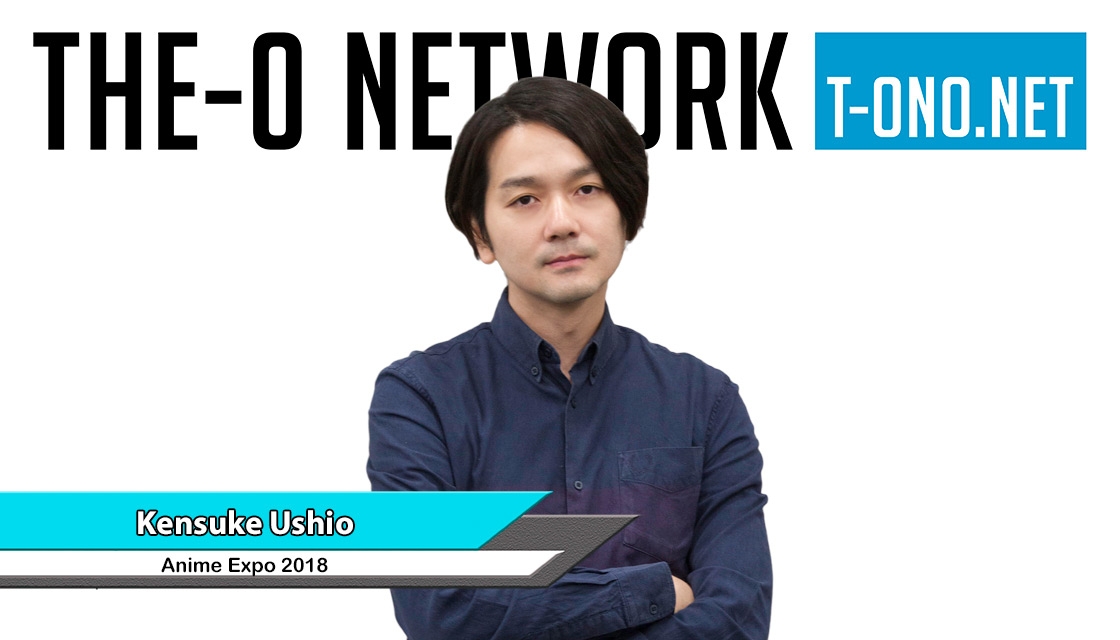First debuting solo in 2008 as “agraph”, Kensuke Ushio is a Japanese composer with three albums so far. Ushio and other members also helped form the band LAMA in 2011 with NAKAKO (iLL/ex. supercar), Miki Furukawa (ex. supercar), and Hisako Tabuchi (bloodthirsty buchers/toddle). As a solo musician artist, Ushio has created music for various popular anime series and movies such as Ping Pong the Animation, Space Dandy, Devilman Crybaby, and A Silent Voice. Along the way Ushio has also done remixing, producing, commercial music, and has continually created musical works in varying fields. While Ushio was at Anime Expo for the US premiere of Liz and the Blue Bird (Liz to Aoi Tori), he was able to spend some time with us for a short interview.
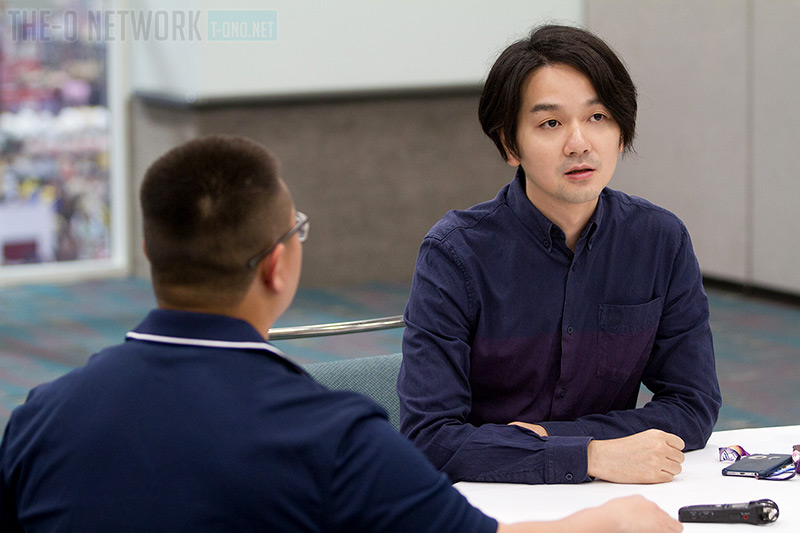
Kensuke Ushio
T-ONO: Congratulations on your US Premiere of Liz and the Blue Bird. I hope more people will enjoy it as I have.
Kensuke Ushio: Thank you very much, I’m glad many enjoyed the movie as well.
T-ONO: How would you describe the music staff dynamic for Liz and the Blue Bird? How was the staff assembled? Were there auditions held?
KU: Director Naoko Yamada chose me. It’s actually our second movie that we did together, the first was A Silent Voice. We agreed on working on something new so there really weren’t any auditions or anything of that sort.
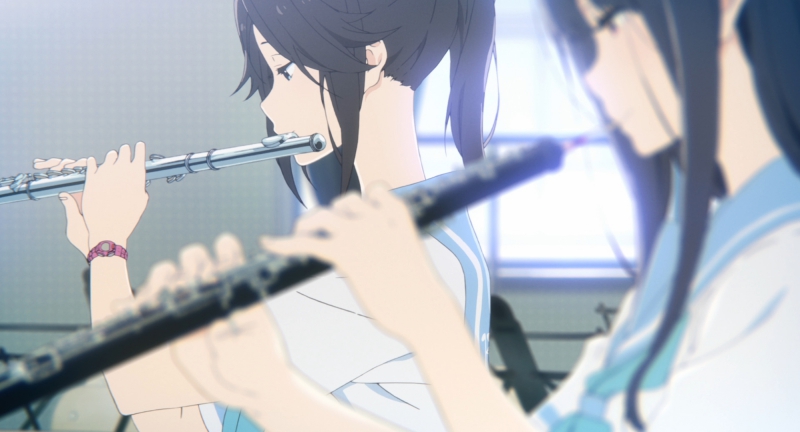
©Ayano Takeda,TAKARAJIMASHA/Hibike Partners
T-ONO: What kind of research did you do before starting Liz and the Blue Bird? Did you look anywhere for inspiration?
KU: There was a concept that Director Yamada and I had thought about first so we already had something in mind. The concept is very hard to explain in words because it's more about feelings. For example, there are two girls in the movie that have similarities, but they gradually start to differentiate. I used a special artistic technique called decalcomania.
Decalcomania is a process where you drop ink on a sheet of paper, fold it in half and open it up to reveal a new piece of art.
Now to express the differentiating part of the girls, I used a concept called coprime integers which is a mathematical number theory.
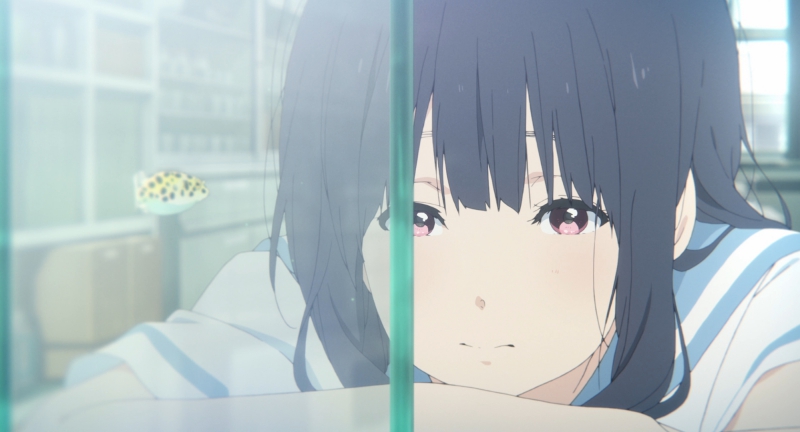
©Ayano Takeda,TAKARAJIMASHA/Hibike Partners
T-ONO: So is it like a musician as an artist or musician as a technician?
KU: It’s more like the girl’s feelings change over time in the movie. And from that, I created this sheet music.
T-ONO: Did the struggles of girls, Mizore and Nozomi, resonate with you? Specifically, at the point of decision on whether to continue with a music career or to embark on a different career path?
KU: There is actually an original novel that we worked off of. I didn’t really put myself into their shoes but wanted to create the world that they were in. I wanted to express their feelings by the concepts that I placed.
T-ONO: How did you decide on which pieces of music to use for your scenes? Which scenes were the most difficult to compose for?
KU: I didn’t choose them myself, but had Director Yamada come with me in the studio and we worked on them together. We chose which music to use for which scenes so it was more of a collaboration.
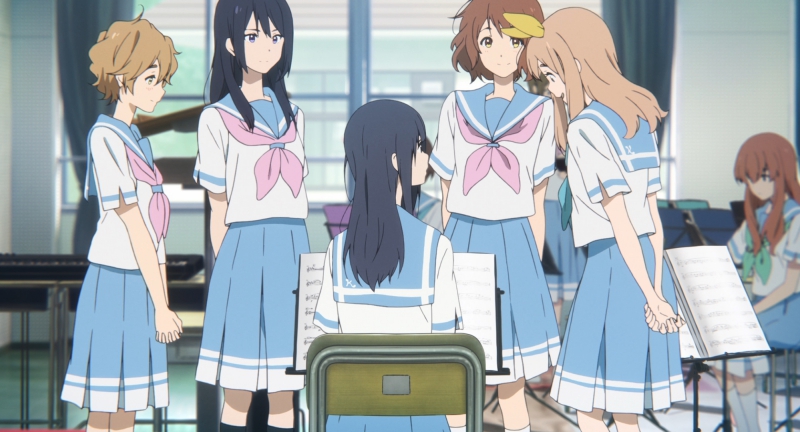
©Ayano Takeda,TAKARAJIMASHA/Hibike Partners
T-ONO: Were you two finishing each other’s sentences? Did you have the same ideas most of the time?
KU: We did have different ideas sometimes, but we were on the same path most of the time. We talked about it a lot at the beginning of the project. Before Director Yamada created the storyboard and before I composed the music, we went over the concept together so there really wasn’t a struggle in creating the works.
T-ONO: You mentioned during the press conference that you are a pianist. As a composer, which instruments have you also enjoyed and which ones do you hope to add in the future?
KU: I can only play the piano and create music on the computer, but I do have an interest in strings. It would be nice to add them into future works.
T-ONO: What would you say is the most challenging project you have had to date?
KU: This project had more of an artistic piece added into it and didn’t really have a rhythm. So creating music for it was very challenging.
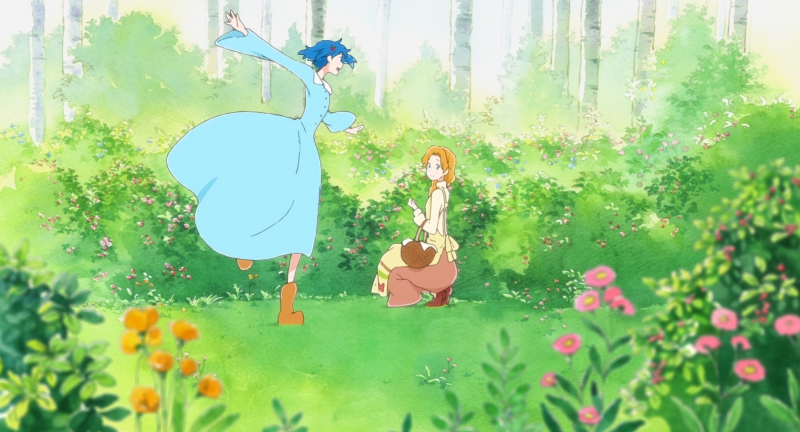
©Ayano Takeda,TAKARAJIMASHA/Hibike Partners
T-ONO: You also mentioned during the press conference John Cage, how did you discover him?
KU: I actually went to college to learn about these types of works and I learned he was the father of modern music. So, I knew him from when I was a student.
T-ONO: In the US, there is still a mild bias against film music composition. In some cases, it has been argued that film scores are merely inferior versions of classical music. Have you faced any of that in your career? Do you think that there is too stark a line drawn between fine art and commercial music?
KU: It’s hard to say, but I don’t really like to work with blockbuster-types of music. I think there are a lot of people fighting for their music to be known differently like Trent Reznor or Johan Johansson, which I personally really like.
T-ONO: Now that Liz and the Blue Bird has been released, what are current projects are you working on?
KU: The next project that I am currently working is a Japanese series called Boogie Pop wa Warawanai (Boogiepop Series). It is directed by Shingo Natsume, who is also known for works like Space Dandy.
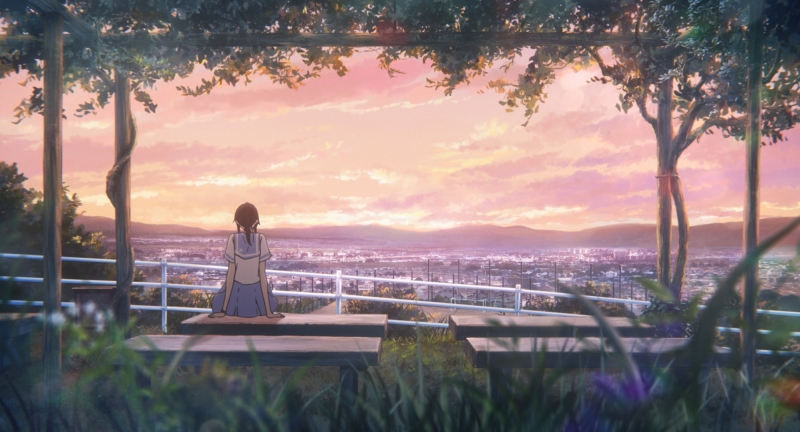
©Ayano Takeda,TAKARAJIMASHA/Hibike Partners
T-ONO: Before you retire from your music career what kind of project would you like to do or create? Some folks dream of making a musical or an opera, do you have similar aspirations?
KU: I actually have two. I work as a solo artist musician as well. I would like to create something that I can agree upon. And as a composer for movies, I would like to create works for Xavier Dolan, because I really like the movies that he directs.
T-ONO: Do you have a few words for your fans?
KU: Liz and the Blue Bird should be out by this year. Director Yamada and I created it with a pure and clear heart so we wish that everyone can enjoy it. Thank you very much.
To learn more about Liz and the Blue Bird and Kensuke Ushio:
http://www.agraph.jp/
http://liz-bluebird.com/
http://www.kyotoanimation.co.jp/en/

